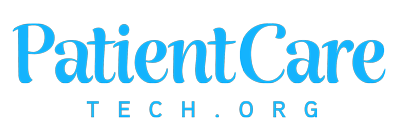Patient Portals Are Empowering Patients and Improving Engagement
In today’s digital age, patient portals have become a transformative tool in healthcare, offering patients unprecedented access to their health information and facilitating more effective communication with their healthcare providers. These online platforms are changing the way patients interact with their care teams and manage their health. This blog explores how patient portals empower patients, enhance engagement, and contribute to better healthcare outcomes.
What is a Patient Portal?
A patient portal is a secure online platform that provides patients with access to their health information and a range of healthcare services. Through a patient portal, individuals can view their medical records, manage appointments, communicate with healthcare providers, and access educational resources. Typically integrated with electronic health records (EHR) systems, these portals ensure that the information provided is current and accurate.
Empowering Patients Through Easy Access
One of the primary benefits of patient portals is the ability to access health information at any time and from anywhere. Patients can view their medical records, including lab results, imaging reports, and medication lists, at their convenience. This continuous access helps patients stay informed about their health status and manage chronic conditions or follow treatment plans more effectively.
Patient portals often include features for scheduling, rescheduling, and canceling appointments. This functionality eliminates the need for time-consuming phone calls and allows patients to manage their appointments online. Automated reminders and confirmations help reduce missed appointments and improve overall efficiency in healthcare settings.
Patients can also view and download their test results and medical records directly from the portal. Immediate access to results enables patients to review their findings as soon as they become available, reducing anxiety and allowing for timely discussions with healthcare providers.
Enhancing Engagement Through Communication
Many patient portals include secure messaging systems that allow patients to communicate directly with their healthcare providers. This feature enables patients to ask questions, request prescription refills, and seek clarifications without needing to visit the office. It fosters a more open line of communication and helps patients feel more involved in their care.
Patient portals often provide access to educational materials related to health conditions, treatment options, and wellness tips. By offering this information, portals empower patients to make informed decisions about their health. Additionally, portals can send reminders for upcoming appointments, medication refills, and preventive care measures, helping patients stay on track with their health goals.
Advanced patient portals can offer personalized health insights based on the data available in the EHR system. These insights might include recommendations for lifestyle changes, preventive screenings, or follow-up care. Personalized feedback enhances patient engagement by addressing individual needs and providing actionable steps for improvement.
Improving Healthcare Outcomes
Patient portals facilitate greater engagement by providing patients with the tools and information they need to actively participate in their care. When patients are more engaged, they are more likely to adhere to treatment plans, attend appointments, and follow up on recommended tests or screenings.
By automating tasks such as appointment scheduling and prescription refills, patient portals help streamline healthcare processes and reduce administrative burdens on healthcare providers. This efficiency allows providers to focus more on patient care and less on administrative tasks.
Patient portals enable better coordination of care by providing a centralized platform for accessing health information. This centralization ensures that all members of a patient’s care team have access to the same information, improving communication and collaboration among providers.
The convenience and accessibility offered by patient portals contribute to higher patient satisfaction. Patients appreciate having control over their healthcare interactions and the ability to access their information without unnecessary delays.
Patient portals are revolutionizing healthcare by empowering patients with easy access to their health information, enhancing communication with healthcare providers, and improving overall engagement. These platforms offer numerous benefits, including continuous access to medical records, streamlined appointment management, and personalized health insights. As patient portals continue to evolve, they will play an increasingly vital role in enhancing patient experience, improving healthcare outcomes, and fostering a more collaborative approach to care. By leveraging the capabilities of patient portals, healthcare systems can support patients in taking an active role in their health and well-being.



